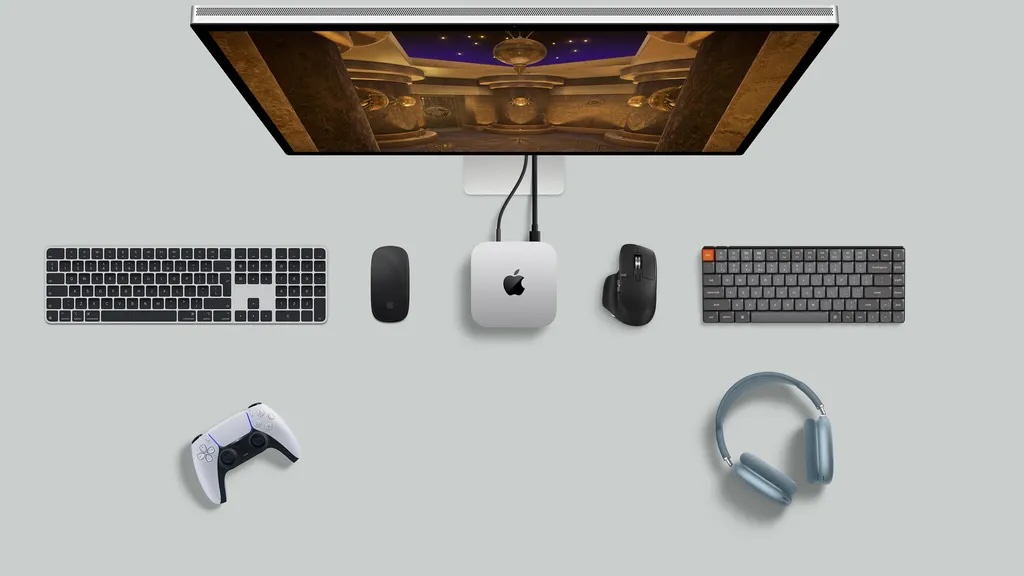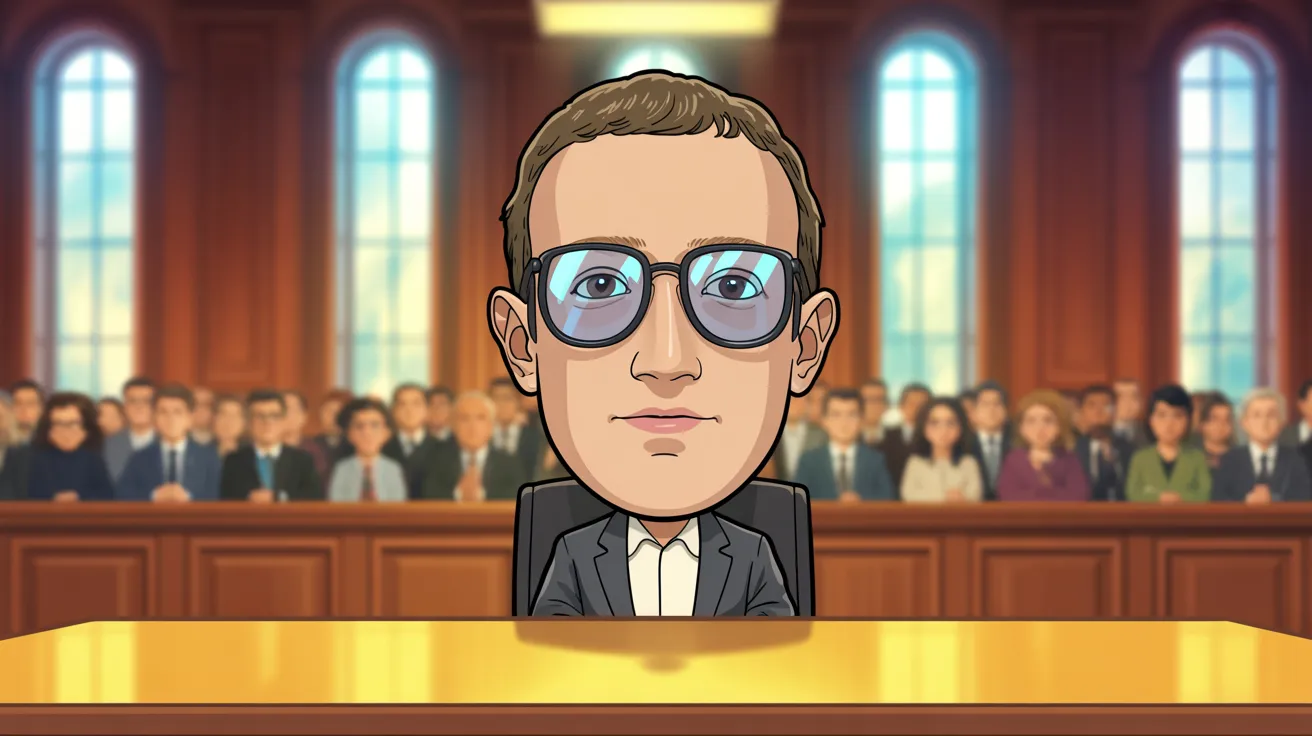Apple may finally embrace touch
PLUS: Samsung's trifold to debut this month
Read Online | Sign Up | Advertise
Good morning, tech enthusiasts. After spending nearly two decades insisting touchscreen laptops were ergonomic disasters, Apple is reportedly testing touch-enabled MacBook Pros behind closed doors.
If the rumors hold, Cupertino could be ready to break one of Steve Jobs’s most hardline design taboos.
In today’s tech rundown:
MacBooks may go touchscreen by 2027
Fresh details about Samsung’s trifold phone
Thiel, Bezos back ultrasound cancer tech
Deel hits $17B despite battle with Rippling
Quick hits on other tech news
LATEST DEVELOPMENTS
APPLE
🍏 MacBooks may go touchscreen by 2027
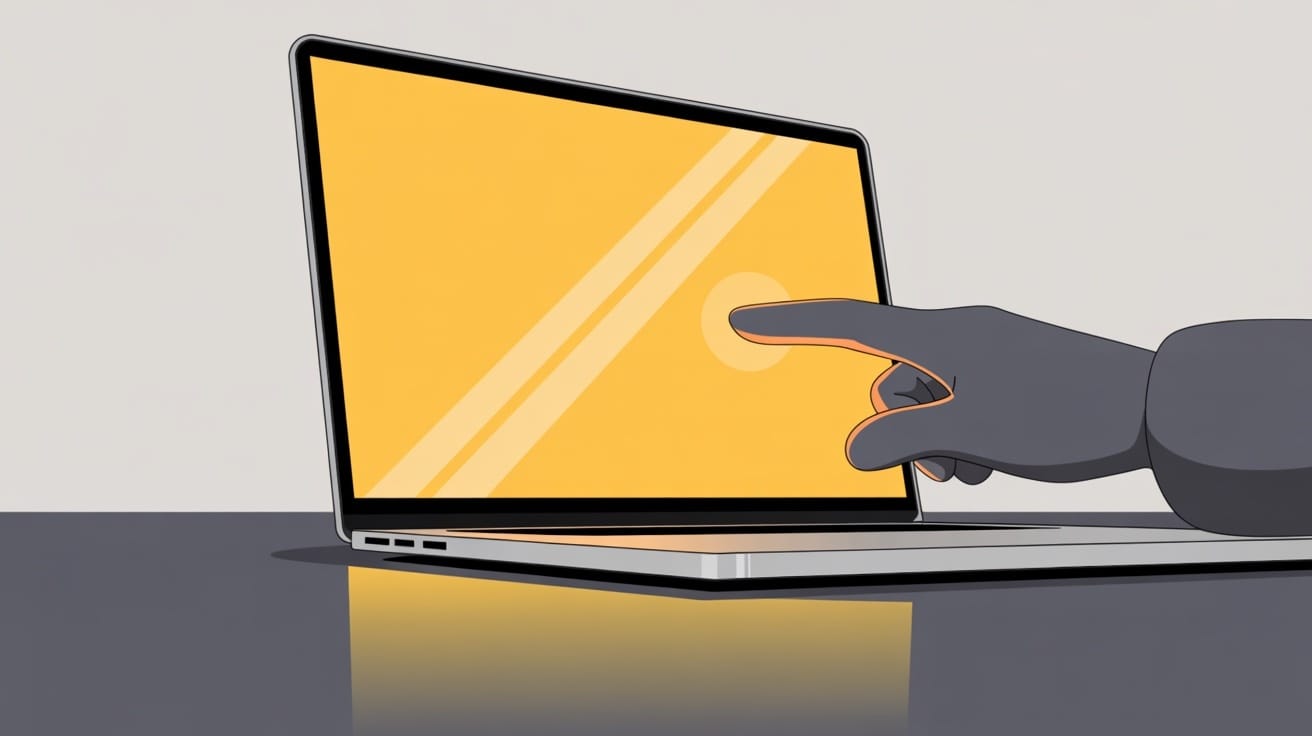
Image source: Ideogram / The Rundown
The Rundown: Bloomberg’s Mark Gurman says Apple is actively testing touchscreen MacBook Pros, with a launch window eyed for late 2026 or early 2027. After years of brushing off the idea, Apple may finally be ready, for real this time.
The details:
Built around Apple’s forthcoming M6 chips, Gurman says the line will pack OLED panels, razor-thin bezels, and a hole-punch camera that kills the notch.
To solve the wobble problem that plagues vertical touchscreens, Apple’s engineers are reportedly beefing up the hinge and display hardware.
The machines will keep their full keyboards and trackpads — the classic Mac experience stays intact — but now with a touch layer on top.
Analyst Ming-Chi Kuo already flagged Apple’s touch-Mac pivot for 2026, and Gurman’s reporting suggests the company is deep into development.
Why it matters: This marks Apple’s biggest reversal on Mac design philosophy in a decade, abandoning Steve Jobs’s famous dismissal of touchscreen laptops as ergonomically flawed. If Apple can crack the hardware challenges, it could bridge the gap between macOS and the touch-native world that iPads have owned for years.
SAMSUNG
📱 Fresh details about Samsung’s trifold phone

Image source: Samsung
The Rundown: Samsung is reportedly preparing to take foldables to the next level at this month’s APEC summit in South Korea, where it will publicly debut its first-ever trifold smartphone.
The details:
The device is rumored to feature two hinges and three connected OLED panels, allowing it to morph from a 6.5-inch phone into a 10-inch tablet.
Samsung reportedly will push the Galaxy Z TriFold beyond China and South Korea into the U.S., UAE, and Vietnam.
The Gyeongju showcase puts Samsung’s trifold in the international spotlight, letting it reclaim the foldable narrative it kicked off with the original Galaxy Fold.
The timing is critical: Samsung’s trifold drops just as Huawei’s Mate XT, the world’s first commercial trifold, gains traction in China.
Why it matters: This is Samsung’s preemptive strike to own the next chapter of foldables before Apple inevitably crashes the party. By going trifold now, Samsung is racing to establish the form factor and ecosystem before competitors take their turn. If it lands, Samsung can claim itself as the pioneer player.
HISTOSONICS
🔬 Thiel, Bezos back ultrasound cancer tech
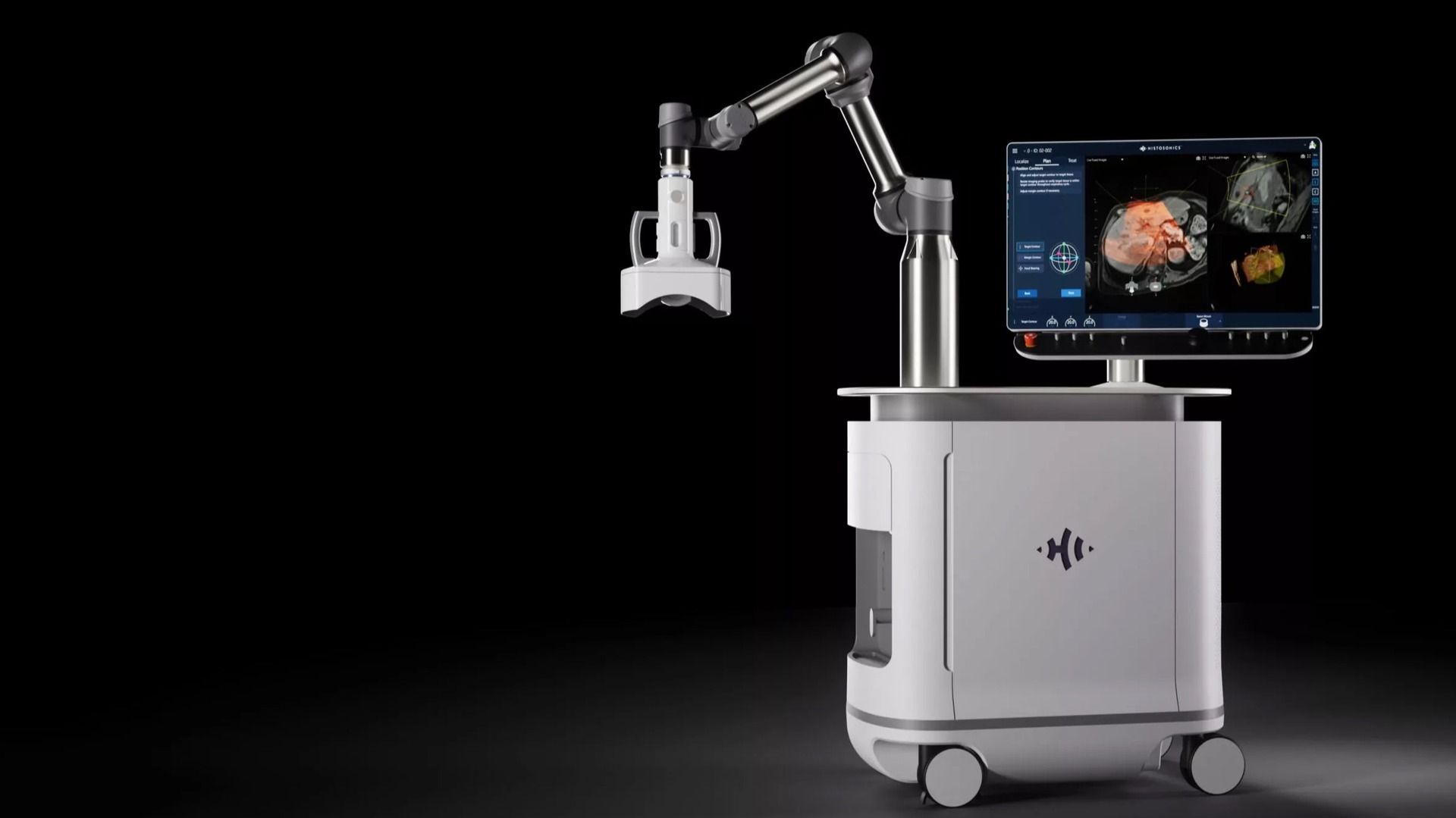
Image source: HistoSonics
The Rundown: U.S. startup HistoSonics just nabbed a $250M lifeline from Peter Thiel, K5 Global, and Jeff Bezos — a massive late-stage cash infusion to fuel its push toward next-gen, scalpel-free cancer treatments.
The details:
The company’s Edison System uses focused ultrasound to destroy tumors, turning diseased tissue into microscopic debris that the body naturally clears.
The tech, called histotripsy, uses rapid bursts of ultrasound to create microscopic bubble clouds inside tumors that shred cancer cells into debris.
It’s already earned FDA clearance for liver tumor ablation and is running trials for prostate, pancreatic, and kidney cancers.
If it works at scale, histotripsy could join robotic surgery and proton therapy as another premium, high-margin procedure hospitals race to offer.
Why it matters: HistoSonics is betting that ultrasound can replace scalpels and radiation for certain tumors, which would be a genuine breakthrough for patients. But histotripsy still has to prove it works across cancer types, matches long-term survival rates of existing treatments, and can scale beyond specialized academic centers.
DEEL
🤑 Deel hits $17B despite battle with Rippling
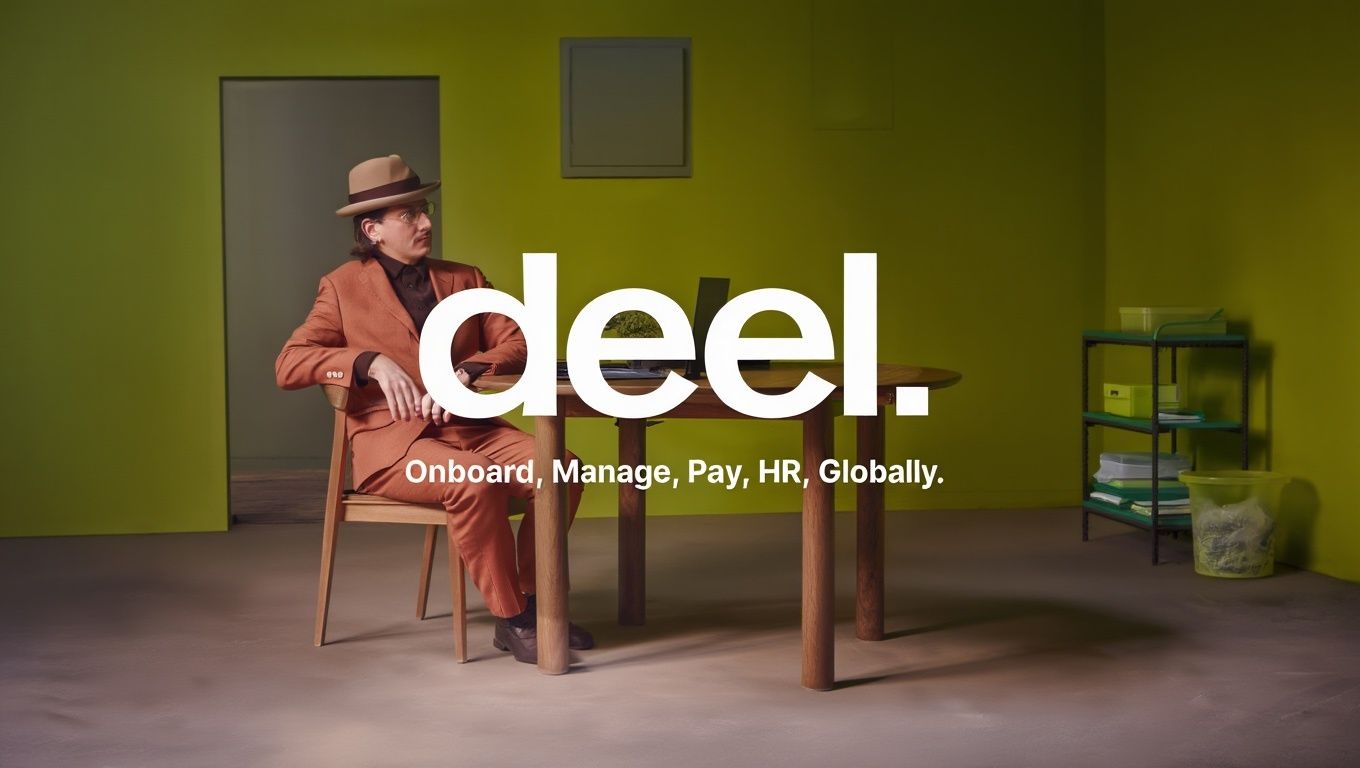
Image source: Deel / YouTube
The Rundown: Despite being locked in a vicious legal battle with rival Rippling — complete with corporate espionage and poaching accusations — HR platform Deel just scored a $300M Series E round that jacks its valuation to $17.3B.
The details:
The round comes as Deel crossed $1B in annual recurring revenue and logged its first $100M revenue month in September.
The raise lands amid Deel’s messy legal war with Rippling, yet both firms continue pulling massive VC checks despite the courtroom drama.
The company says it now serves over 37K businesses, processing $22B in payroll annually for 1.5M workers across more than 150 countries.
Founded in 2019, Deel helps companies hire, pay, and manage global teams by automating compliance, payroll, and HR infrastructure across borders.
Why it matters: Deel and Rippling aren’t just HR startups — they’re two of the most valuable private tech companies on the planet. And despite being locked in a full-blown corporate espionage brawl, investors are still writing them enormous checks. The bet? That the global payroll and HR market is big enough to support both giants.
QUICK HITS
📰 Everything else in tech today
BYD issued its largest recall ever, pulling back more than 115K Tang and Yuan Pro EVs due to the risk of failure in pure electric drive mode and water ingress into the battery.
Chinese robotaxi firm Pony AI partnered with Stellantis to test and deploy autonomous taxis across Europe, beginning with pilot programs in Luxembourg.
Meta is finalizing an almost $30B financing deal — the largest private capital transaction on record — to fund its Hyperion data center in rural Louisiana.
Lyft will open a new tech hub in Toronto’s financial district in the second half of next year, making the city its second-largest tech center after San Francisco.
Apple and NBCUniversal are launching a joint Apple TV–Peacock bundle on Oct. 20 that gives U.S. subscribers discounted access to both services.
Nintendo ordered suppliers to build 25M Switch 2 consoles by March 2026, betting on record first-year sales that would crush most console launches.
Amazon revealed new details on its modular nuclear reactor in Washington, set to deliver nearly 1 GW of carbon‑free power for AI and cloud operations in the 2030s.
Finnish health tech firm Oura raised $900M in a Fidelity‑led round, boosting its valuation to about $11B.
Apple just locked in 650 MW of European wind and solar to offset the power customers use when charging devices, slashing nearly a third of its carbon footprint.
Waymo teamed up with DoorDash in Phoenix, where customers can now receive food and grocery orders from DashMart via autonomous Waymo robotaxis.
Electric aviation startup Beta Technologies is targeting a valuation of about $7.2B in its IPO, offering shares at $27–$33 with hopes of raising up to $825M.
Pinterest rolled out new controls letting users dial down how much AI-generated content appears in their feeds, a move following backlash over AI slop.
Impulse Space, the startup founded by SpaceX veteran Tom Mueller, unveiled plans to begin delivering multi‑ton lunar cargo by 2028 using its Helios kick stage.
COMMUNITY
🎓 Highlights: News, Guides & Events
Read our last AI newsletter: Claude gains new Skills
Read our last Tech newsletter: Meta and Anduril’s AI war helmet
Read our last Robotics newsletter: Waymo robotaxis head to London
Today’s AI tool guide: Generate on-brand presentations with Claude Skills
RSVP to next workshop today @1PM EST: Build AI teams with Zapier agents
See you soon,
Rowan, Jennifer, and Joey—The Rundown’s editorial team
Stay Ahead on AI.
Join 2,000,000+ readers getting bite-size AI news updates straight to their inbox every morning with The Rundown AI newsletter. It's 100% free.




